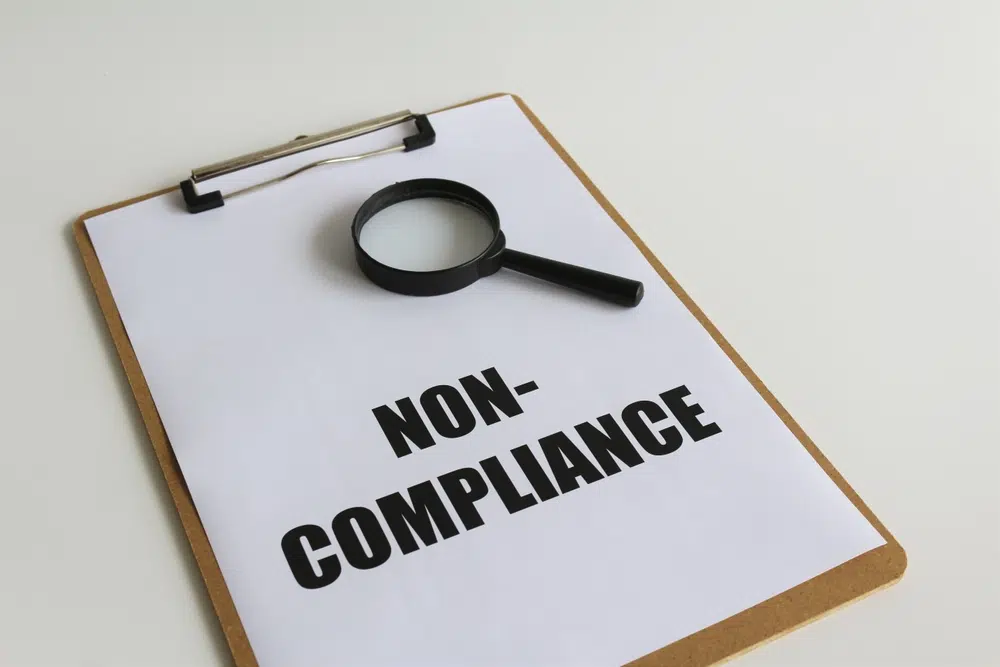
Another legal issue facing newsagents is the rising cost of insurance. Due to the increased risk of crime, many insurers are now charging higher premiums for newsagents. This has made it difficult for many smaller newsagents to stay in business. Finally, newsagents are also feeling the squeeze from competition from supermarkets and other retailers who sell newspapers and magazines.
Supermarkets are able to sell these products at a lower price due to their economies of scale. As a result, many newsagents are struggling to compete and stay in business. These legal issues are having a significant impact on the UK newsagent industry, and it remains to be seen how long it will survive.
Your proposed business will determine the laws that you need to be aware of. You may also find that specific rules apply to certain products that you sell in addition to consumer and fair trading laws that apply to almost all retailers. You may be interested in the following areas.
What licences does a newsagent need?
Licenses and/or registration requirements may apply to your newsagent business depending on what you sell.
Registering as a food business
The local environmental health department must be notified if your business stores, sells, or prepares food. As a result of their inspection, they will ensure that your premises meet the requirements of food safety laws.
In order to register in good time, contact your local authority as early as possible in the planning process. Registration is free of charge.
Alcohol licensing
Alcohol sales and the provision of hot food between 11pm and 5am are regulated by licensing laws in England and Wales. Any premises where such activities will take place are required to have a premises licence (although late night refreshment may be exempt from the licensing requirement in some cases), while anyone selling alcohol from a premises with a premises licence needs a personal licence. More information about late-night refreshment licensing can be found on the Gov.uk website.
Northern Ireland’s county courts grant alcohol licenses. Alcohol off-sales licences are not currently granted in Northern Ireland because there are a set number of off-licenses. As a result, you will usually need to find someone who is giving up or selling their license. On the NI Direct website, you can learn more about alcohol licensing in Northern Ireland.
Like England and Wales, Scotland grants alcohol licences to individuals and businesses through local Licensing Boards. On the Scottish Government website, you can learn more about alcohol licensing.
Retailers are required by licensing conditions to implement age verification policies to prevent underage sales of alcohol.
Selling tobacco
The Scottish Tobacco Retailers Register must be filled out by all tobacco retailers in Scotland. The Scottish Tobacco Retailers Register allows you to register online. Belfast City Council is responsible for registration in Northern Ireland. Wales created a tobacco retailers’ register during 2017 under new legislation.
A Facility Identifier Code and an Economic Operator Identifier Code are required for all retailers selling tobacco products.
Selling fireworks
Trading standards departments or fire authorities (depending on your location) in Great Britain or the Department of Justice in Northern Ireland must be notified if you plan to sell fireworks. In Great Britain, fireworks sales licences are required if you are planning on selling fireworks outside of the usual fireworks seasons – Guy Fawkes night, Diwali, New Year, and Chinese New Year. Visit the RoSPA Safer fireworks website for more information about UK firework licensing.
Other matters
You will need a Music Licence from PPL PRS Ltd if you plan to play background music in the store. Licences are subject to an annual fee.
To employ young people for a newspaper round, you must register with your local authority.
Age-restricted products
Do not do any of the following:
- Sell tobacco products (including e-cigarettes) to minors under 18
- You cannot sell fireworks in Great Britain unless you have a license for year-round sales, or your premises has been registered with your local fire authority or trading standards department. The Department of Justice in Northern Ireland requires registration
- It is prohibited to sell fireworks to young people under 18 (except for party poppers, which are age-restricted at 16)
- Sell Christmas crackers to children under 12 years of age
- You cannot sell alcohol to people under the age of 18
- Alcoholic substances should not be sold to people under 18 if fumes are likely to be inhaled for intoxication
- Under 18s are not allowed to be sold cigarette lighter gas refills
- Under 16-year-olds should not be sold lottery tickets
- You should not sell knives/blades to young people under the age of 18
- Any DVD or game that is age-restricted should not be sold or rented to anyone under the age specified on the title.
Additionally, loose food goods must be weighed and priced in metric units when sold loose from bulk.
It is best to contact your local trading standards department for assistance. Trading Standards Business Companion provides detailed guidance as well.
Cigarettes and tobacco products
It is a legal requirement to have a UK duty paid fiscal mark on any cigarettes or packets of hand rolling tobacco you sell. New regulations require standardised packaging for all tobacco products. Products (or advertising) related to tobacco cannot be displayed at the point of sale. The Economic Operator Identifier Code and the Facility Identifier Code must be obtained by all retailers who sell tobacco products.
Retailing
Consumer interests are protected by a variety of legislation that applies to retail outlets. There must be no misleading descriptions of goods or services, and the retail price of goods must be clearly displayed. The quality and fit of all goods and services will be your responsibility. The Trading Standards Business Companion website has more information about fair trading regulations.
Food safety
Regulations regarding food safety must be followed by all businesses in the food sector. Registration with the local environmental health department is required at least 28 days before you start selling food. To ensure your operations are hygienic and in compliance with Food Safety Act requirements, you should talk to your local environmental health officer about what you should install in your premises.
Information about important food safety regulations can be found in a variety of helpful publications from the Food Standards Agency. A range of publications are available, including Safer Food Better Business and Safe Catering (Northern Ireland). You can reach the Food Standards Agency publications line at 0845 606 0678 or visit their website.
Food hygiene rating
The food hygiene rating given to a business selling food in Wales and Northern Ireland must be displayed on their website.
Litter
Litter generated by retail activities must be cleared up by businesses around their sites. Examples include takeaway food or drink packaging, used lottery tickets, scratch cards, empty crisp or confectionery packets, ice cream and sandwich wrappers, etc.
If litter becomes an issue, the local authority can issue Street Litter Control Notices.
Waste batteries
Your business must recycle used batteries from customers if it sells more than 32 kg of portable batteries per year. This service must be free of charge. A calculator tool has been developed by DEFRA to assist businesses in determining if they sell enough batteries each year to be affected by the new regulations. Waste Support has a tool you can use.
Carrier bag charge
Businesses with fewer than 250 full-time equivalent employees are exempt from the 5 pence charge in England. The gov.uk website provides detailed guidance.
If retailers provide customers with a single-use carrier bag, they must charge them at least 5 pence. No matter what type of single-use bag you use, whether it is plastic, paper, or plant-based starch, this applies. The Zero Waste Scotland and Gov.Wales websites provide detailed information.
If the retail price of a bag is less than 20 pence (including any free bags), retailers in Northern Ireland must charge a 5 pence levy.
Health & Safety, fire
It is your responsibility to comply with workplace health and safety laws and fire safety regulations.
Employment legislation
Employment legislation must be followed by anyone who employs staff. The areas of employment law that have the greatest impact on the day-to-day operation of employers are recruitment, employment contracts, pay, working hours, vacations, employment policies, sickness, maternity, paternity, discrimination, discipline, grievances, dismissals, redundancies, and the Employment Tribunals system.
Young people of compulsory school age are governed by local authority byelaws when it comes to employment. To deliver newspapers, young people must obtain individual employment permits from the local authority. To obtain compulsory registration forms and details of applicable local byelaws, contact the local authority (usually the education department). A 13-year-old must be over 13 years of age to work during these times and for these hours.
Cycle proficiency certificates are required for those using bicycles for the paper round.
Insurance for a newsagent
Explain how your business will operate to an insurer or insurance broker, and they will explain what coverage you need by law, as well as other coverage you may need.
It should be noted that The Retail Mutual offers members preferential insurance rates through the National Federation of Retail Newsagents (NFRN). You might be able to save money and get the level of coverage you need this way.
Using an insurance comparison site, you can discover the differences between policies.
Read more: Sector trends for Newsagents
Conclusion
Newsagents operating in the UK have to account for a variety of legal issues that affect their daily running. These include health and safety standards set by various government agencies, such as fire regulations and food hygiene standards. Additionally, newsagents need to adhere to data protection policies and be aware of all relevant consumer protection legislation, as well as being versed in the laws surrounding business tax. By understanding these laws and dedicating time to keeping informed of any changes or updates, newsagents can ensure they remain compliant and operate without any risks of facing legal action.
Lee Jones is a seasoned Business Finance Specialist with over two decades of invaluable experience in the financial sector. With a keen eye for market trends and a passion for helping businesses thrive, Lee has become a trusted advisor to countless organizations seeking to navigate the complexities of finance.


